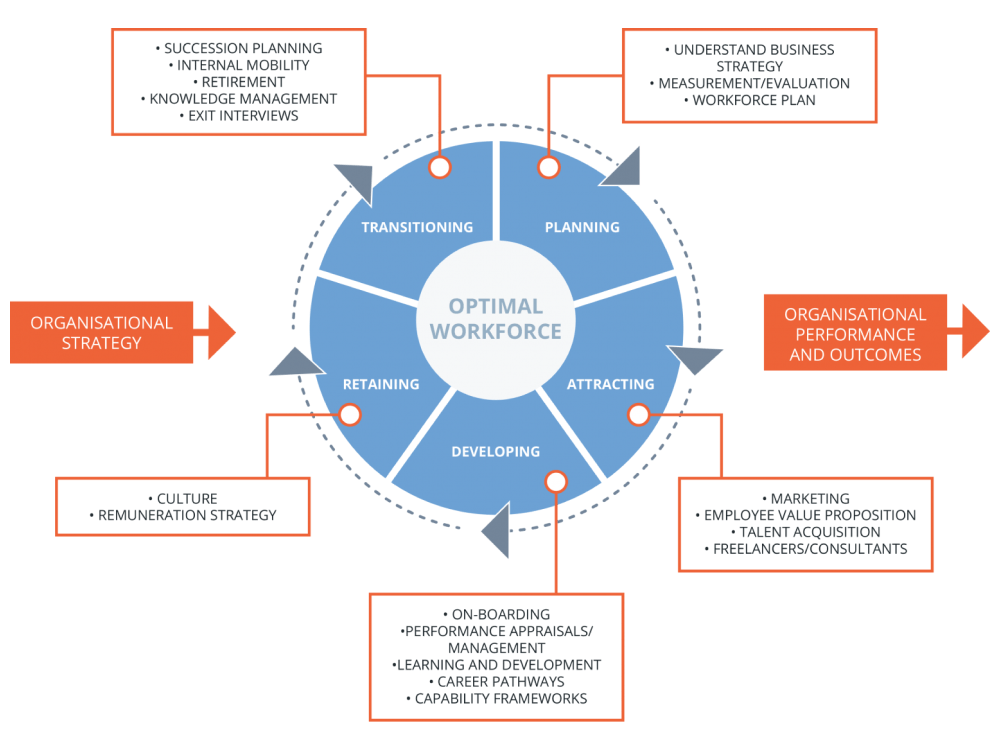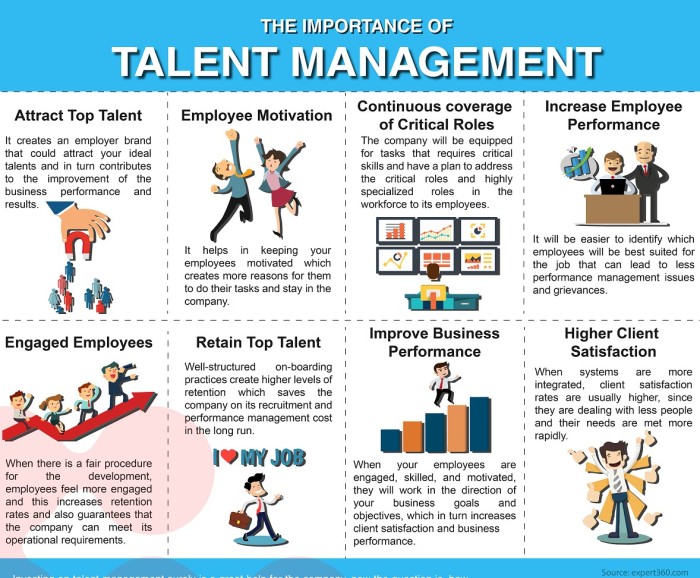Talent Management Presentation
| Introduction to Talent Management | ||
|---|---|---|
| Talent management is the strategic process of attracting, developing, and retaining skilled individuals within an organization. Effective talent management ensures that the right people are in the right roles, contributing to overall business success. Talent management encompasses activities such as recruitment, performance management, training and development, and succession planning. | ||
| 1 | ||
| Importance of Talent Management | ||
|---|---|---|
| Talent management helps organizations identify and leverage their human capital, leading to increased productivity and competitiveness. Effective talent management reduces turnover rates, as employees feel valued and are provided with growth opportunities. Organizations with strong talent management practices are better positioned to adapt to changing market conditions and achieve long-term success. | ||
| 2 | ||
| Key Components of Talent Management | ||
|---|---|---|
| Recruitment: Attracting and selecting top talent through strategic sourcing, screening, and interviewing processes. Performance Management: Setting clear goals, providing regular feedback, and conducting performance evaluations to ensure alignment with organizational objectives. Learning and Development: Providing training, coaching, and mentoring opportunities to enhance employee skills and capabilities. | ||
| 3 | ||
| Key Components of Talent Management (contd.) | ||
|---|---|---|
| Succession Planning: Identifying and developing high-potential employees for future leadership roles within the organization. Employee Engagement: Implementing initiatives to foster a positive work environment, promote motivation, and increase employee satisfaction. Rewards and Recognition: Designing and implementing effective reward systems to acknowledge and appreciate employee contributions. | ||
| 4 | ||
| Benefits of Effective Talent Management | ||
|---|---|---|
| Improved Employee Retention: Engaged and well-developed employees are more likely to stay with the organization. Increased Productivity: When employees are equipped with the right skills and resources, they can deliver higher-quality outputs. Enhanced Organizational Culture: A focus on talent management creates a culture of continuous learning, growth, and development. | ||
| 5 | ||
| Challenges in Talent Management | ||
|---|---|---|
| Changing Workforce Dynamics: Managing a diverse workforce with varying expectations and needs. Skills Shortages: Addressing the gap between the skills required by the organization and the skills available in the job market. Succession Planning: Identifying and developing future leaders to ensure a smooth transition during organizational changes. | ||
| 6 | ||
| Best Practices in Talent Management | ||
|---|---|---|
| Align Talent Strategy with Business Goals: Ensure talent management initiatives support the organization's overall objectives. Continuous Learning and Development: Offer ongoing training and development opportunities to keep employees engaged and up-to-date. Regular Performance Feedback: Provide timely feedback and coaching to employees to promote growth and improvement. | ||
| 7 | ||
| Best Practices in Talent Management (contd.) | ||
|---|---|---|
| Employee Recognition Programs: Implement reward and recognition initiatives to motivate and retain top performers. Data-driven Decision Making: Leverage HR analytics to make informed talent management decisions and track progress. Collaborative Approach: Involve employees in the talent management process to foster a sense of ownership and engagement. | ||
| 8 | ||
| Case Study: Company X's Talent Management Success | ||
|---|---|---|
| Company X implemented a comprehensive talent management strategy aligned with their business goals. They focused on developing internal talent through targeted training programs and mentoring initiatives. As a result, Company X experienced a significant decrease in employee turnover and increased productivity. | ||
| 9 | ||
| Conclusion | ||
|---|---|---|
| Talent management is crucial for organizations to attract, develop, and retain skilled individuals. By implementing effective talent management practices, organizations can enhance employee engagement, productivity, and overall business success. It is essential to continuously adapt and improve talent management strategies to meet the evolving needs of the organization and its workforce. | ||
| 10 | ||









